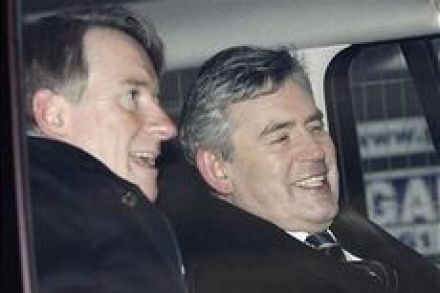Gentlemen interrupt their lunch for no one
Why did it take Peter Mandelson so long to support Brown on the afternoon of the snow plot? Well, his lordship was taking luncheon. His interview with the Telegraph contains the disclosure: ‘As the scheming by Geoff Hoon and Patricia Hewitt unfolded, the Business Secretary ate haddock with an old friend. “We had a good talk which did not focus on events back at Westminster. When I got back, I put out a statement suggesting that it was a very minor storm in an even smaller teacup. I called it right. By teatime it had become a two-hour wonder.”’ Mandelson must eat at a Gladstonean pace. The Business Secretary is













